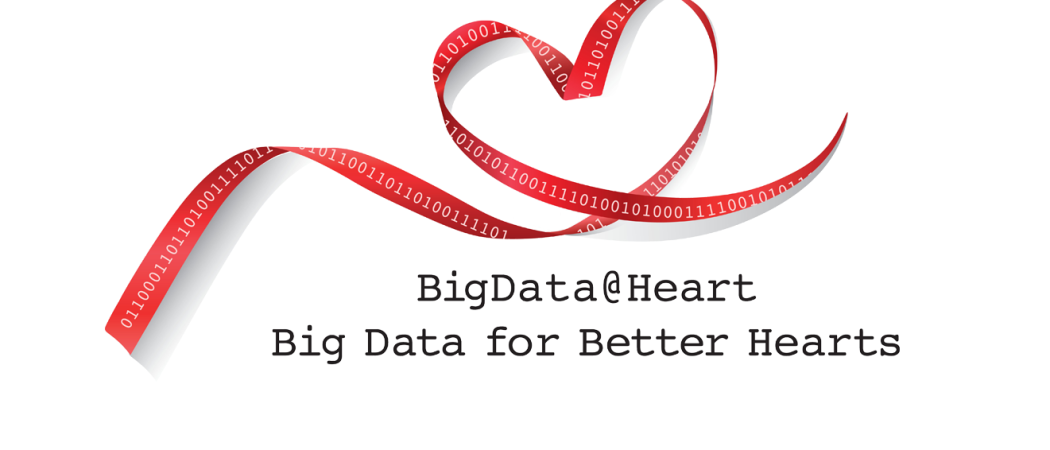The genomics revolution has brought personalised medicine to cancer and rare diseases, but cardiovascular care is stuck in the past. An EU-funded initiative aims to change that

Experts from across Europe have launched a five-year public-private research effort to apply the power of genomics and big data to cardiovascular health, in the €19 million BigData@Heart project, funded by the EU’s Innovative Medicines Initiative (IMI).
The project is a recognition that in the face of the enormous burden of heart failure, atrial fibrillation and acute coronary syndrome, the field lags behind other major disease areas in using genomic and big data to improve patient outcomes.
It is hoped that the outputs will lead to a major revamp of clinical guidelines in cardiology. The researchers involved in BigData@Heart have been instrumental in shaping current treatment and management of heart conditions and there is an emerging consensus that these should be updated to reflect advances in big data.
“Today’s treatment guidelines reflect the scientific constraints of an earlier era where clinical markers to guide therapy were limited to conventional risk factors and end-organ damage, and where the main endpoint in clinical trials is patient death and hospitalisation,” said project member Stefan Anker of Charité University Medicine, Berlin. “Our goal is to build a much more personalised, data-driven system that brings cardiology into the ‘omics era.”
Genomics alters our view of disease
While the treatment of cardiovascular diseases has improved vastly in recent decades, the human and economic cost of lost productivity, hospitalisation and death remains substantial, said Maureen Cronin of the pharmaceutical company Vifor Pharma, a co-lead of the project. “Advances in ‘omics have changed how we think about disease but have not been fully embraced in cardiovascular disease. If you look to oncology and rare diseases, there has been much greater progress.”
A simple blood test can help predict the risk of developing breast cancer, or guide doctors in selecting cancer drugs. This more personalised approach to cancer care is the result of decades of genetics research and advances in diagnostic testing.
Similarly, genomics is making a major contribution to the diagnosis and treatment of rare diseases.
So for example, the National Health Service in England now makes DNA sequencing of tumours to identify mutations against which there are targeted drugs, an integrated part of clinical care.
In inherited rare diseases, the genomes of patients are being sequenced in order to try and reach a diagnosis and to inform treatment.
Cancers and rare diseases are amenable to this approach because in most cases they are driven by mutations. Cardiovascular diseases, in contrast, tend to have more heterogeneous aetiologies, and patients often have comorbidities.
“In cardiovascular conditions, there is most likely a genetic component but the relative roles of genetics, comorbidities, such as hypertension, diabetes or kidney disease and risk factors, such as exercise and diet are not yet fully elucidated,” said Folkert Asselbergs of UMC Utrecht and University College London. “This complicates our understanding of a patient’s prognosis.”
However, advances in computing power and the availability of large patient data sets could allow researchers to build algorithms that take account of a patient’s genes, lifestyles and other chronic illnesses. Ultimately, said Asselbergs, this would pave the way for a more individualised and efficient approach to therapy.
The power of pooling data
BigData@Heart is one of four disease-specific projects exploring how to use patient information to improve outcomes being funded by IMI. The €5.3 billion collaboration between the pharmaceutical industry and the European Commission is designed to speed up drug discovery and development, through investments in research infrastructure, streamlining clinical trials processes and promoting data sharing.
“Thanks to this public-private partnership approach, BigData@Heart has access to most of the relevant large-scale European cardiovascular disease databases, ranging from electronic health records and disease registries to clinical trials and large epidemiological cohorts,” said Rick Grobee, UMC Utrecht and academic leader of the project. “This brings together data from more than five million cases of atrial fibrillation, heart failure and acute coronary syndrome, as well as [that of] over 16 million healthy individuals.”
Building on the experience gained in other IMI projects, the researchers will use machine learning and data mining to design prognosis algorithms that can predict patient outcomes. The system will use an individual’s medical history, along with hospitalisation rates and country-specific statistics for similar patients, to advise on the best course of treatment and the likely results.
Accelerating drug development
Along with more tailored use of existing treatments, the consortium hopes to identify new drug targets. The development pipeline for cardiovascular drugs is slow, expensive and high-risk, Cronin noted. “The chance of eventual approval for a cardiovascular disease drug candidate in Phase I trials is 7 per cent, the lowest of any disease category – along with oncology,” she said. “We need better definitions of these diseases, their markers and endpoints, as well as better segmentation of patient populations. In defining disease outcomes, we must listen to patients and take account of what matters to them, including functional capacity and quality of life.”
The project will run to 2022, focusing on six pilot studies and will also address ethical and regulatory issues. Central to this will be finding ways to access patient data while safeguarding personal privacy, and agreeing on the essential elements of electronic patient records. Cronin says getting that right will make or break Europe’s efforts to catch up with the US in the race to unlock the potential of big data in healthcare.
“The US precision medicine initiative is taking these issues seriously,” she says. “In the EU, the complexities of managing data in several countries, each with its own health system, mean there is a lot of catching up to do. We need to be sure that Europe is not left behind.”





 A unique international forum for public research organisations and companies to connect their external engagement with strategic interests around their R&D system.
A unique international forum for public research organisations and companies to connect their external engagement with strategic interests around their R&D system.